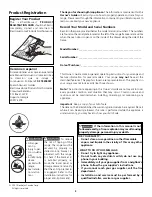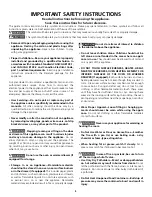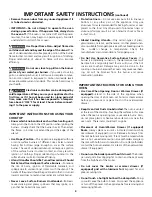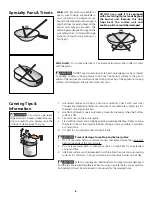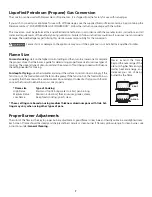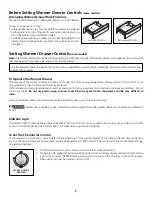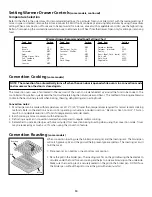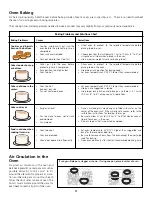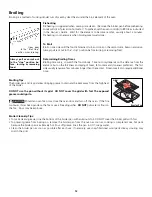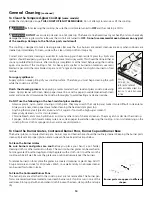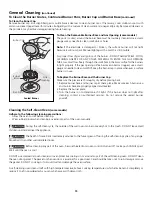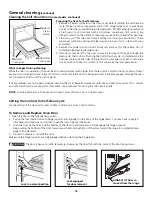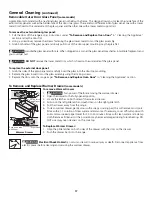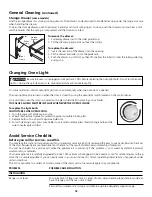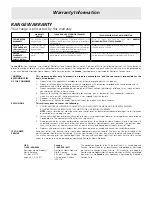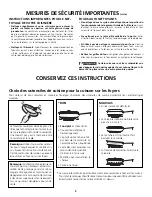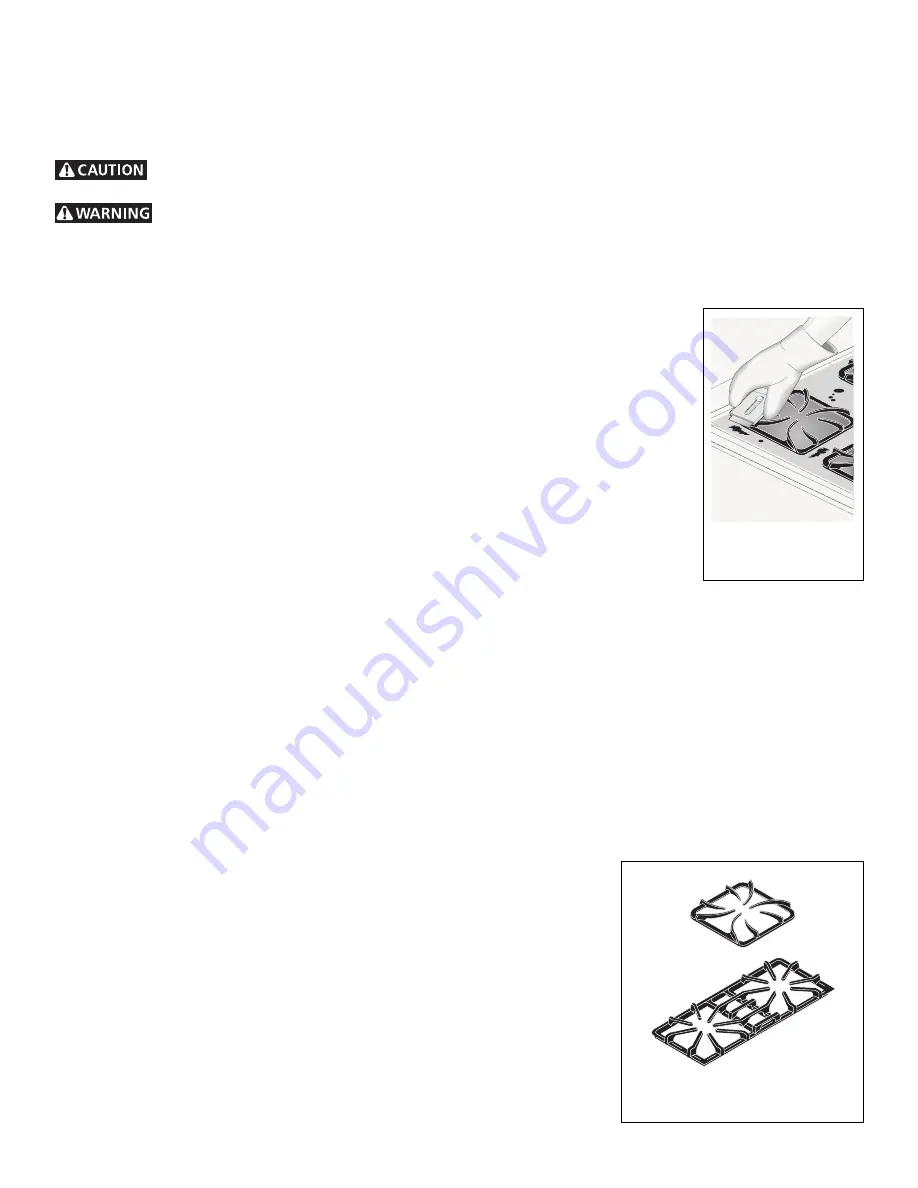
14
General Cleaning
(continued)
To Clean the Tempered-glass Cooktop
(some models)
Unlike the standard gas range,
THIS COOKTOP IS NOT REMOVABLE
. Do not attempt to remove or lift the cooktop.
Before cleaning the cooktop, be sure the controls are turned to
OFF
and the cooktop is COOL.
DO NOT
use a cooktop cleaner on a hot cooktop. The fumes can be hazardous to your health, and can chemically
damage the ceramic- glass surface. Be sure the controls are turned to
OFF
.
Do not use commercial oven cleaners on any part
of the cooktop. Damage to the finish or parts could result.
The cooktop is designed to make cleaning easier. Because the four burners are sealed, cleanups are easy when spillovers are
cleaned up immediately. To clean, wipe with a clean, damp cloth and wipe dry.
Correct and consistent cleaning is essential to maintaining your heat-resistant glass top. Spills and
spatters should be wiped up using a clean paper towel and sudsy water. This should be done either as
soon as possible after spill occurs, after cooking is completed, or at the latest, before using the cooktop
again. Use caution if the cooktop is hot. For heavy spills, spatter or burned-on materials, use razor
blade scraper. Hold the razor blade scraper at a 30° angle and remove food spills or burned on food
residue.
For sugary spillovers:
Sugary spills can cause pitting of your cooktop surface. Therefore, you must begin cleaning the spills
while the cooktop is still hot.
Finish the cleaning process
by applying a recommended heat- resistant glass cooktop cleaning
cream
. Apply cleaner with clean, damp paper towel. Rinse with a paper towel dampened with clean
water and wipe dry.
Always wipe the cooktop thoroughly to avoid heating any cleaner residue.
Do NOT use the following on the heat-resistant glass cooktop:
-
Abrasive plastic, nylon, metal scouring or cloth pads. They may scratch the cooktop and make it more difficult to clean later.
Always use a new, clean paper towel when cleaning the heat-resistant glass top.
-
Anything that may melt (plastics, aluminum foil, sugar or food with a high sugar content).
-
Heavy duty cleansers, rust or stain removers.
-
Chlorine bleach, ammonia, hydrofluoric acid or any other kind of chemical cleaners. They may etch or discolor the cooktop.
-
Sponges, cloths or dish towels. Always use a new, clean paper towel when cleaning the cooktop. Lint or soil remaining on the
cooktop from a cloth or sponge can burn and cause discoloration.
To Clean the Burner Grates, Contoured Burner Pans, Burner Cap and Burner Base
The burner grates, contoured burner pans, burner caps and burner base should be routinely cleaned. Keeping the burner ports
clean will prevent improper ignition and an uneven flame. See instructions below.
To Clean the Burner Grates
Be sure burners and grates are cool
before you place your hand, a pot holder,
cleaning cloths or other material on them. The cast iron burner grates can be washed in
hot soapy water. Rinse thoroughly and dry the grates with a cloth - don't put them on the
cooktop while still wet. Be sure the grates are positioned securely over the burners.
To remove burned on food, place the grates in a covered container or plastic bag. Add 1/
4 cup ammonia and soak for 30 minutes. Wash, rinse well and dry. An abrasive cleaner
can be used for stubborn stains.
To Clean the Contoured Burner Pans
The burner pans are attached to the cooktop and are not removable. The burner pan
forms a recessed well area located around each burner unit. If spill occurs in one of the
well areas, blot up spill with an absorbent cloth. Rinse with a clean, damp cloth and wipe
dry.
Burner grate can appear in different
shapes.
H e a v y
b u r n e d - o n
spills can be removed
with a razor blade scraper. Use
caution to avoid damaging
surface.


